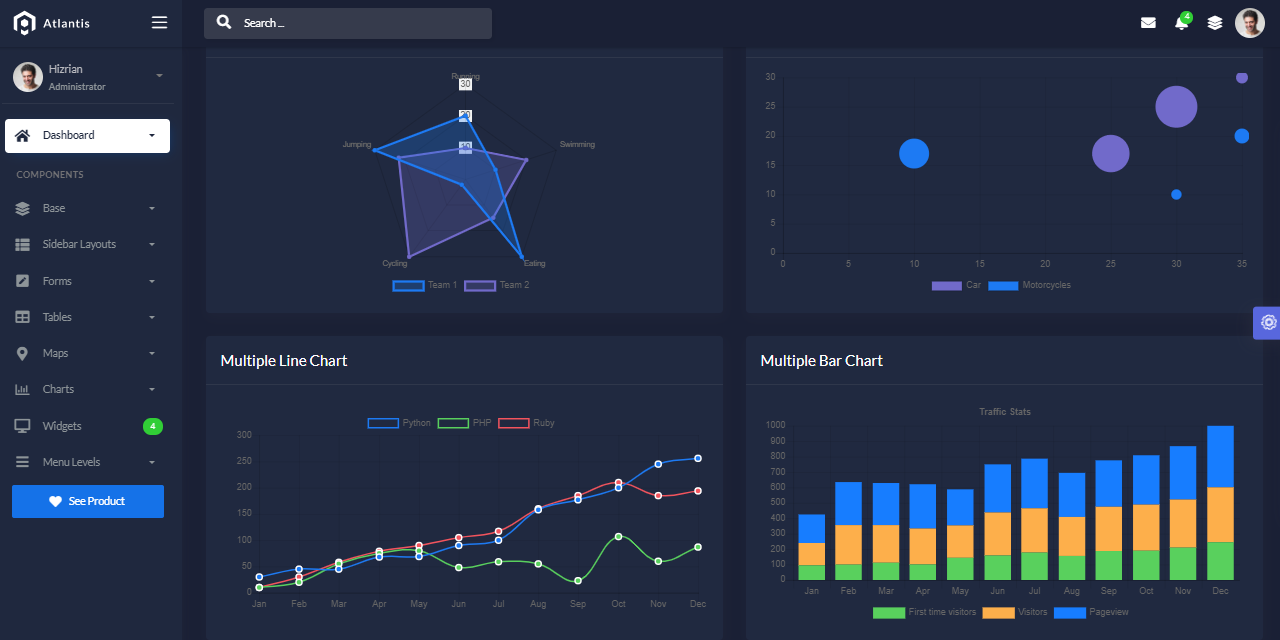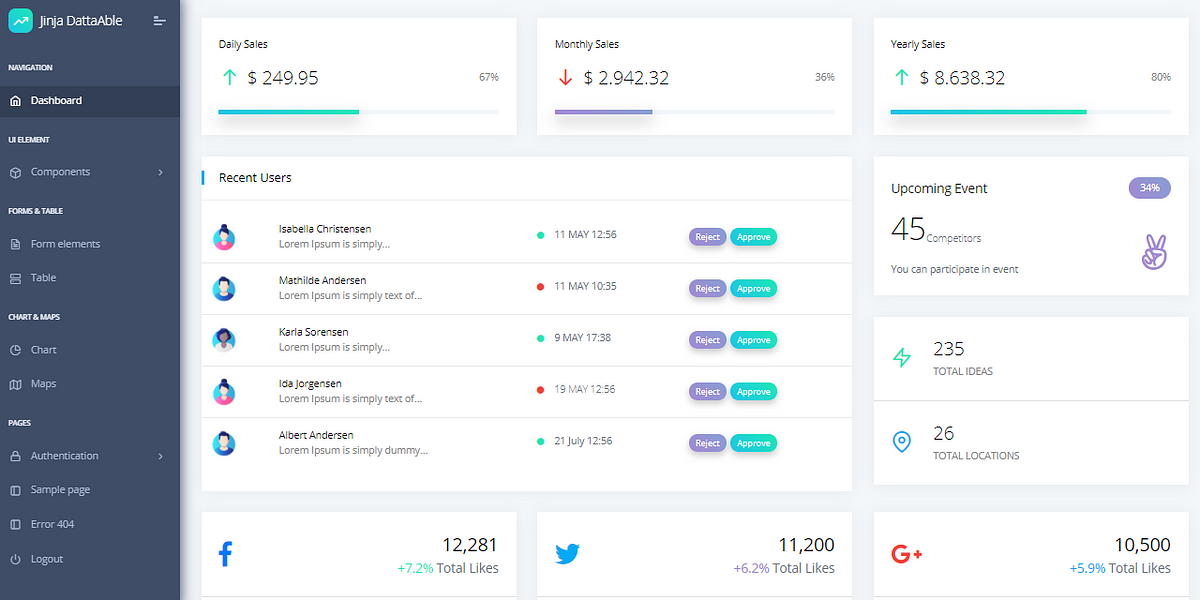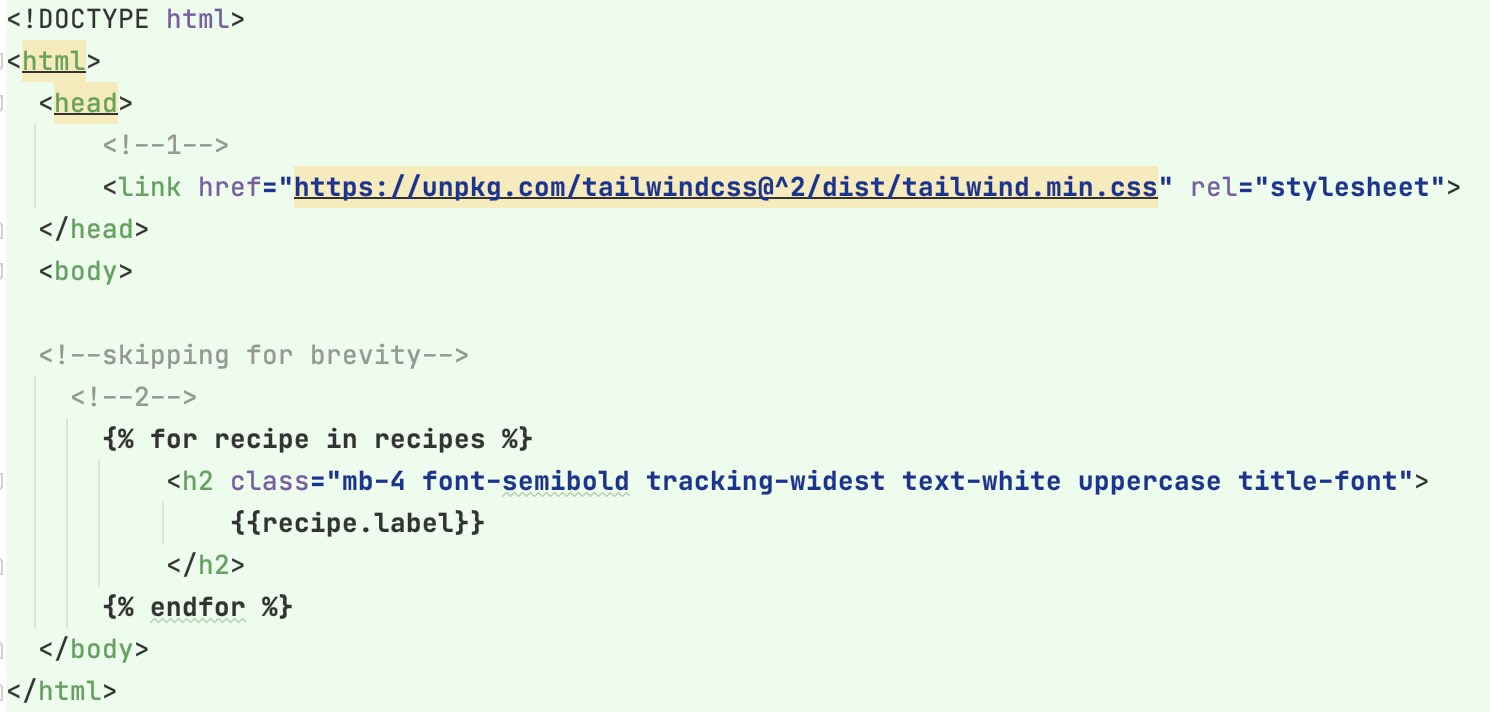Jinja Template Fastapi
Jinja Template Fastapi - Web 2 i have a fastapi web app, where i would like to use a templating language. 2.why we need to use template in fastapi? Web to know more about setting up the jinja templating in fastapi, refer to this article 5 advanced features of fastapi you should try. You can use any template engine you want with fastapi. A common choice is jinja2, the same one used by flask and other tools. Web from apis.version1.route_login import login_for_access_token from db.session import get_db from fastapi import apirouter from fastapi import depends from fastapi import. From fastapi import fastapi from fastapi.templating import jinja2templates app = fastapi () template =. You can use jinja2 as a template engine to serve html responses from your fastapi application. You can disable that like this: Web jinja2 is a popular templating language used by flask, bottle, pelican) and optionally by django. 3.how to use jinja template in fastapi? Real python has an excellent primer on using jinja. Web latest version released: Web from apis.version1.route_login import login_for_access_token from db.session import get_db from fastapi import apirouter from fastapi import depends from fastapi import. Web using jinja templates in fastapi. In the app directory i have a main.py file with this code: Web fastapi is a relatively new web framework for python. Real python has an excellent primer on using jinja. Dec 11, 2022 project description introduction the fastjinja2templates package makes it easy to use jinja2 templates with fastapi. Web in this part, i answered the following question: 3.how to use jinja template in fastapi? Read more about it in the fastapi docs for templates. Web a jinja template is simply a text file. 0 after setting up authenticationmiddleware like in the documentation, you can access request.user.is_authenticated, which should be a. It is primarily intended for writing api, but we can use it for the traditional approach —. You can use the jinja2templates class to render jinja templates. Real python has an excellent primer on using jinja. It is primarily intended for writing api, but we can use it for the traditional approach — templating. It offers the following benefits: Web jinja2 is a popular templating language used by flask, bottle, pelican) and optionally by django. From fastapi import fastapi, request from fastapi.responses import. You can use the jinja2templates class to render jinja templates. Read more about it in the fastapi docs for templates. You can import it directly from fastapi.templating: It is primarily intended for writing api, but we can use it for the traditional approach — templating. Web regarding sending query parameters from a jinja template, you can now use starlette's starlette.datastructures.url, which provides an include_query_params. 0 after setting up authenticationmiddleware like in the documentation, you can access request.user.is_authenticated, which should be a. Web all directories are on the same level. Web 2 i have a fastapi web app, where i would like to use a templating. In the app directory i have a main.py file with this code: Web fastapi is a relatively new web framework for python. Web regarding sending query parameters from a jinja template, you can now use starlette's starlette.datastructures.url, which provides an include_query_params. You can use any template engine you want with fastapi. Web in this part, i answered the following question: You can import it directly from fastapi.templating: You can use the jinja2templates class to render jinja templates. From fastapi import fastapi, request from fastapi.responses import. 3.how to use jinja template in fastapi? Web jinja2 templates with fastapi for python. Web 2 i have a fastapi web app, where i would like to use a templating language. There are utilities to configure it easily that you can use directly in your fastapi application (provided by starlette). 0 after setting up authenticationmiddleware like in the documentation, you can access request.user.is_authenticated, which should be a. Web jinja2 is a popular templating language. You can use the jinja2templates class to render jinja templates. To get started, we need to install the jinja package and create a new folder, templates, in our project directory. This video covers how to use jinja2 templates in a python fastapi app the example code for this project can be. You can disable that like this: You can use. 2.why we need to use template in fastapi? It is primarily intended for writing api, but we can use it for the traditional approach — templating. Right now, in order to use jinja2 i have to indicate where the templates folder is located. Web we created an object of jinja2templates and instantiated it with directory/folder name templates. Web fastapi uses the templating support in starlette, which sets the jinja2 autoescape option by default. In the app directory i have a main.py file with this code: Web from apis.version1.route_login import login_for_access_token from db.session import get_db from fastapi import apirouter from fastapi import depends from fastapi import. You can use any template engine you want with fastapi. You can disable that like this: Web all directories are on the same level. There are utilities to configure it easily that you can use directly in your fastapi application (provided by starlette). Web jinja2 is a popular templating language used by flask, bottle, pelican) and optionally by django. Real python has an excellent primer on using jinja. A common choice is jinja2, the same one used by flask and other tools. From fastapi import fastapi, request from fastapi.responses import. Web a jinja template is simply a text file. A jinja template doesn’t need to have a specific extension:. Dec 11, 2022 project description introduction the fastjinja2templates package makes it easy to use jinja2 templates with fastapi. It offers the following benefits: 3.how to use jinja template in fastapi?Simple ToDo App in FastAPI with Jinja2 Template
FastAPI Series Tutorial 08 (Basic Jinja2 Templates with FastAPI
Login in FastAPI + Jinja Demo with code YouTube
Jinja Template Short Introduction and FREE Samples Codementor
Jinja2 Template — OpenSource and Free Medium
GitHub achandran/fastapijinja Adds integration of the Jinja
GitHub kumark99/fastapi_crud_ui_jinja2 This is a mini project on
The Ultimate FastAPI Tutorial Part 6 Serving HTML with Jinja Templates
FastAPI Simple Website with Jinja2 Template Tutorial101
Jinja2 Templates with FastAPI for Python YouTube
Related Post:







